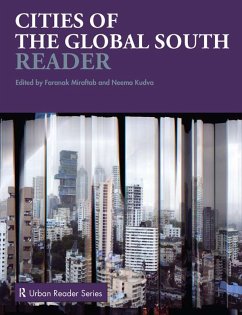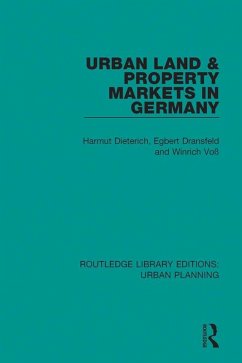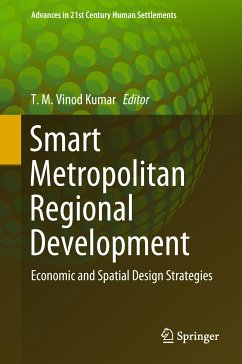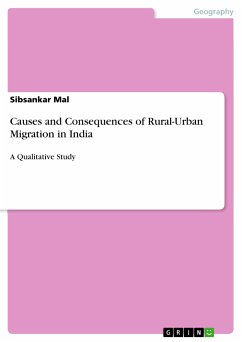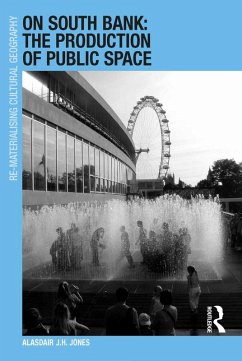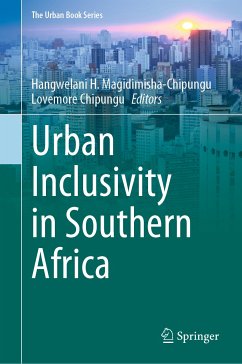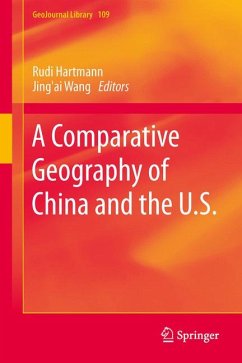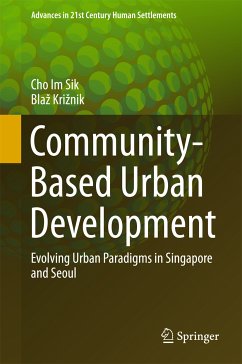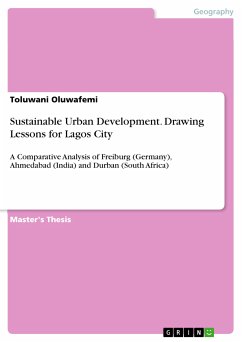
Sustainable Urban Development. Drawing Lessons for Lagos City (eBook, PDF)
A Comparative Analysis of Freiburg (Germany), Ahmedabad (India) and Durban (South Africa)
Versandkostenfrei!
Sofort per Download lieferbar
Statt: 47,95 €**
36,99 €
inkl. MwSt. und vom Verlag festgesetzt.
**Preis der gedruckten Ausgabe (Broschiertes Buch)
Alle Infos zum eBook verschenkenWeitere Ausgaben:

PAYBACK Punkte
0 °P sammeln!
Master's Thesis from the year 2018 in the subject Geography / Earth Science - Demographics, Urban Management, Planning, grade: 3.52, Cyprus International University (GRADUATE STUDIES), course: ARCHITECTURE, language: English, abstract: This thesis aims to compare sustainable urban development practices across the globe in order to draw lessons for Lagos. In order to do this, a comparative analysis is carried out. 3 cities have been chosen: Freiburg (Germany) Ahmedabad (India), and Durban (South Africa). These cities are compared according to the three principles of sustainability, which are en...
Master's Thesis from the year 2018 in the subject Geography / Earth Science - Demographics, Urban Management, Planning, grade: 3.52, Cyprus International University (GRADUATE STUDIES), course: ARCHITECTURE, language: English, abstract: This thesis aims to compare sustainable urban development practices across the globe in order to draw lessons for Lagos. In order to do this, a comparative analysis is carried out. 3 cities have been chosen: Freiburg (Germany) Ahmedabad (India), and Durban (South Africa). These cities are compared according to the three principles of sustainability, which are environmental protection, social and economic principles. Eventually, Lagos is evaluated according to the same principles in order to determine where it stands with regards to sustainable urban development. Sustainable urban development is a wide topic that has been discussed globally. Sustainability draws on politics, economics and philosophy and other social sciences as well as the hard sciences. Sustainability as incorporating economic and social dimensions is widely accepted as the architectural importance to the societies based on the economic growth, social progress and effective protection of the environment. With the rise of concerns about the consequences of human activity and based on Brundtland report in 1980, Sustainable development paradigm was introduced. This approach in different aspects of economic, social, cultural and environmental has been extended; today in urban planning literature, it has a special place. In order to achieve the sustainable urban development, first concepts, theories and indicators must be identified and examined to be able to provide strategies for the sustainable development of cities.
Dieser Download kann aus rechtlichen Gründen nur mit Rechnungsadresse in A, B, BG, CY, CZ, D, DK, EW, E, FIN, F, GR, HR, H, IRL, I, LT, L, LR, M, NL, PL, P, R, S, SLO, SK ausgeliefert werden.




